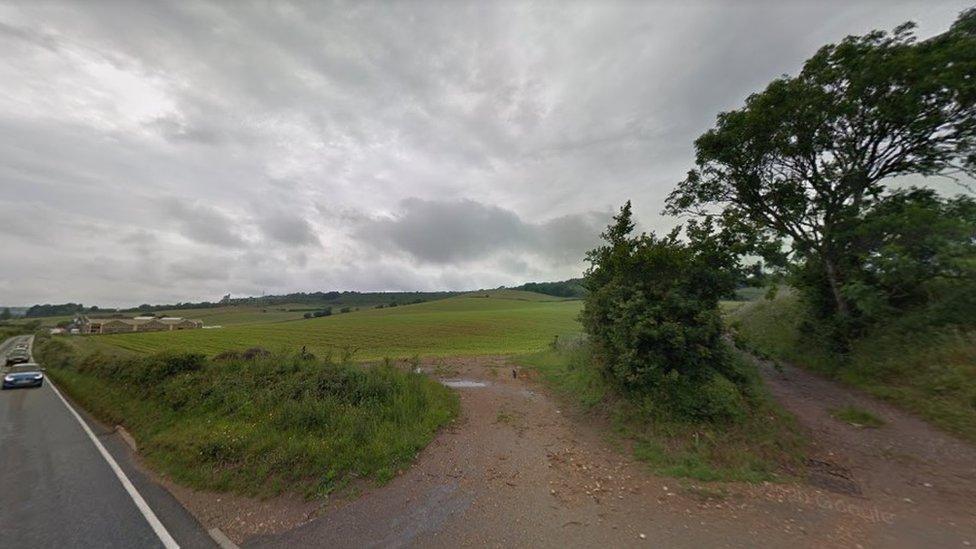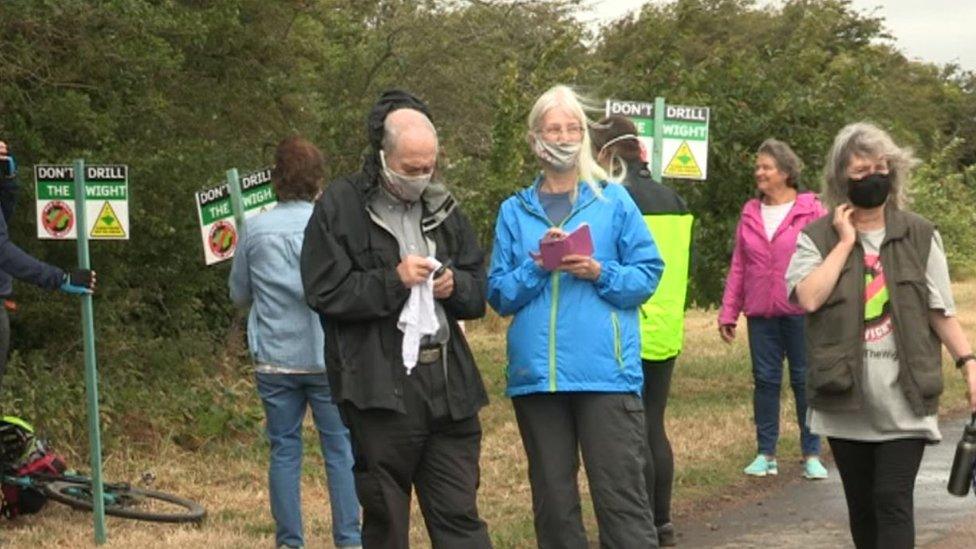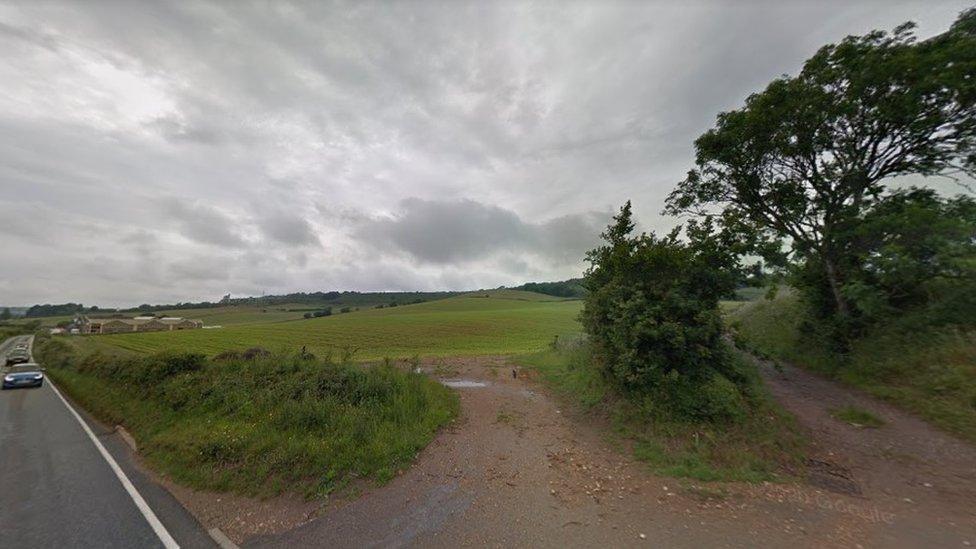Isle of Wight oil exploration drilling recommended for approval
- Published

The application involves land near the New Barn Business Park
Plans for exploratory oil drilling on the Isle of Wight have recommended for approval.
Council planning officers have said they "recommend consent be granted" to drill two exploration boreholes at Arreton, south-east of Newport.
UK Oil and Gas Investments (UKOG) first submitted its proposal 18 months ago.
The council has received more than 1,000 objections to the application, including from six parish councils and MP Bob Seely.
Campaign group Don't Drill The Wight previously described the proposal as "catastrophic" and "atrocious".
Island planning officers have written a report, external backing the plans for a period of three years.
During that time UKOG could construct, operate and decommission the exploration and appraisal site for hydrocarbons, according to the Local Democracy Reporting Service.
Should the company want to take the development further and produce oil, if the site proves viable, a further planning application would be needed.
'Emotive issue'
Isle of Wight Council has recorded 1,064 negative public responses to the plans.
Objectors raised concerns about the impact drilling could have on the island's Area of Outstanding Natural Beauty (AONB) qualification and local wildlife.
MP Bob Seely urged councillors to reject the application, saying it was "not appropriate" for the island.
He added: "Instead of exploring sites for oil and gas, we need to focus efforts here on producing energy from renewable resources. These are the things that are sustainable and will preserve the environment for future generations."
Isle of Wight Council's environmental health team, ecology officer and AONB partnership, raised no objections to the development.
Nor did national bodies Natural England, the Environment Agency or the Health and Safety Executive.
In their evaluation, officers said the provision of hydrocarbons was an "emotive issue" but national policies determined there was a need for fossil fuels.
They emphasised that the economic benefits would be "relatively minor" at a local level, but nationally the benefits of the proposal would be substantial, and said "great weight" should be attributed to that.
A final decision will be made by the council on 19 October.

Follow BBC South on Facebook, external, Twitter, external, or Instagram, external. Send your story ideas to south.newsonline@bbc.co.uk, external
Related topics
- Published27 June 2020

- Published15 May 2020
